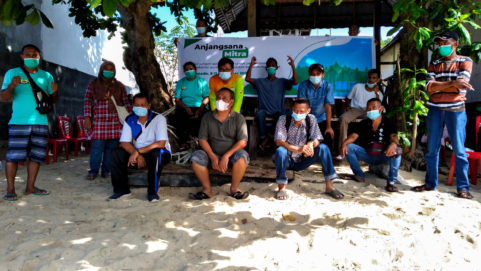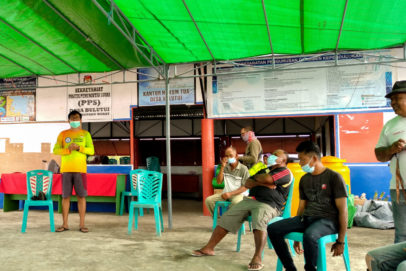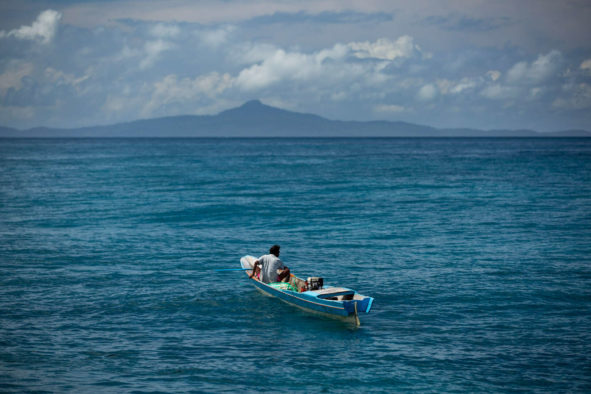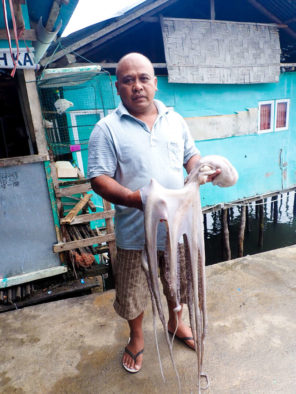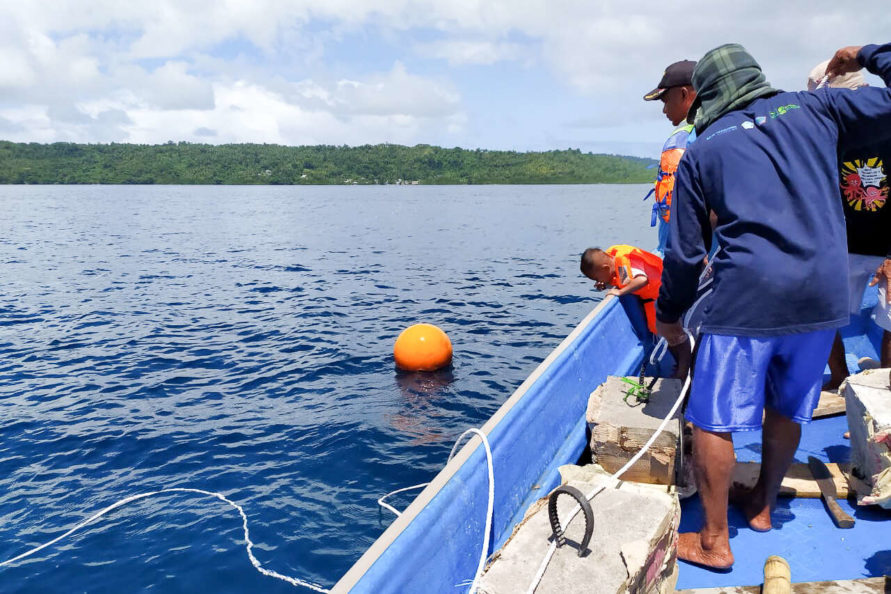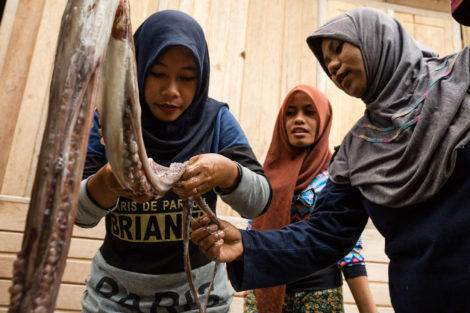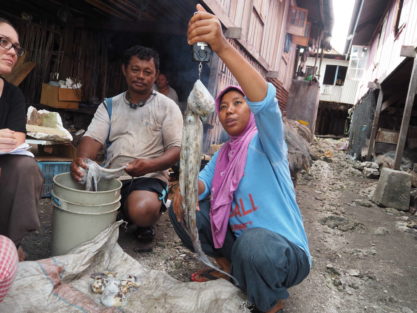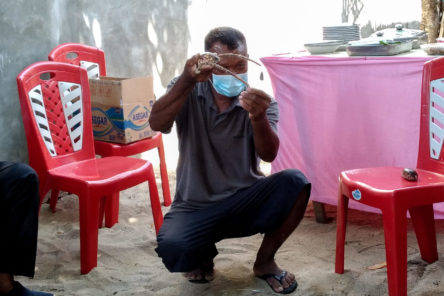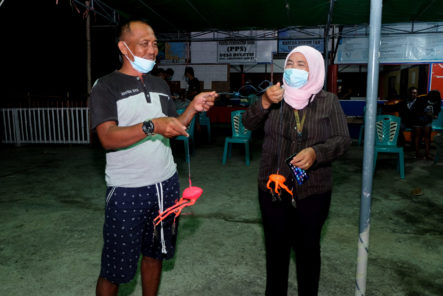This post is also available in:
 Indonesian
Indonesian
“Welcome to Rumah Boboca [Home of Octopus] Gangga Satu,” said Moses Corneles, the Gangga Satu Village Head (or Hukum Tua), as he welcomed the fishing community from Ende, East Nusa Tenggara, to his small coastal village in North Minahasa, Indonesia.
The visit was part of ‘Anjangsana Mitra’, a learning exchange facilitated by Tananua Flores Foundation and YAPEKA, two of Blue Ventures’ partner organisations in Indonesia. The event, which happened at the end of 2020, allowed these community-based organisations and the communities they work with to learn from each other about sustainable fisheries management.
Octopus fishers, buyers, and data collectors from Ende gained hands-on experience of octopus fisheries management in Gangga Satu and the neighbouring village, Bulutui, also located in North Minahasa. Following strict health and safety protocol, the participants had the chance to share and learn from the experiences of their peers, meeting with other fishers to discuss approaches to community-led marine conservation relevant to their local context.
Learning about Rumah Boboca
After a three year process and with support from YAPEKA, we finally established this ‘Rumah Boboca’ through Village Head Regulations in November 2020. Here, we can’t fish for octopus during the temporary closure period, to give the octopus an opportunity to grow bigger,” said Moses.
The Rumah Boboca in Gangga Satu is a 5.8 hectare area of ocean, located directly in front of the village. “The easy access of the location makes it easier for us to monitor, in order to minimise fishing activity by fishers, either from within the village or outside the village,” added Moses. “We use collaborative monitoring to oversee the area, making sure that no one catches octopus in Rumah Boboca during the closure”.
“The community, together with the village government, installed buoys at 100 metre intervals on the surface of the water to mark the Rumah Boboca area. Fishers can pass by and catch fish here, but can’t catch octopus,” Moses added.
Through Village Head Regulations, the community decided to implement sanctions for any fisher who violates the rules. This could be verbal or written warnings, confiscating fishing gear, even prohibiting them from participating in the reopening day of the Rumah Boboca.
The fishers from Ende also got the chance to visit Gangga Satu’s neighbouring village, Bulutui. Since January 2020, the community here have been managing their octopus fishery through a 22.9 hectare Rumah Boboca, located in a popular octopus fishing location called Napo Ila.
“I’m proud of this Rumah Boboca. I have a dream to establish a similar initiative in my hometown village, Batu Woka. The vast majority of the inhabitants there are also octopus fishers,” said Khadijah Buchari, Interim Village Head of Bulutui.
Rumah Boboca is one way that communities can increase the value of the octopus they catch. Octopus in this area can only be caught once every three months, with a limited fishing period. After that, the area will be closed again for the next three months,” said Efra Wantah, Programme Coordinator, YAPEKA.
A deep dive into data and gears
One of the important processes carried out by both communities – in Ende and in North Minahasa – is participatory octopus fisheries monitoring. Octopus catch data has become an empowering tool for the communities, enabling them to make more informed decisions about how to manage their octopus fishery.
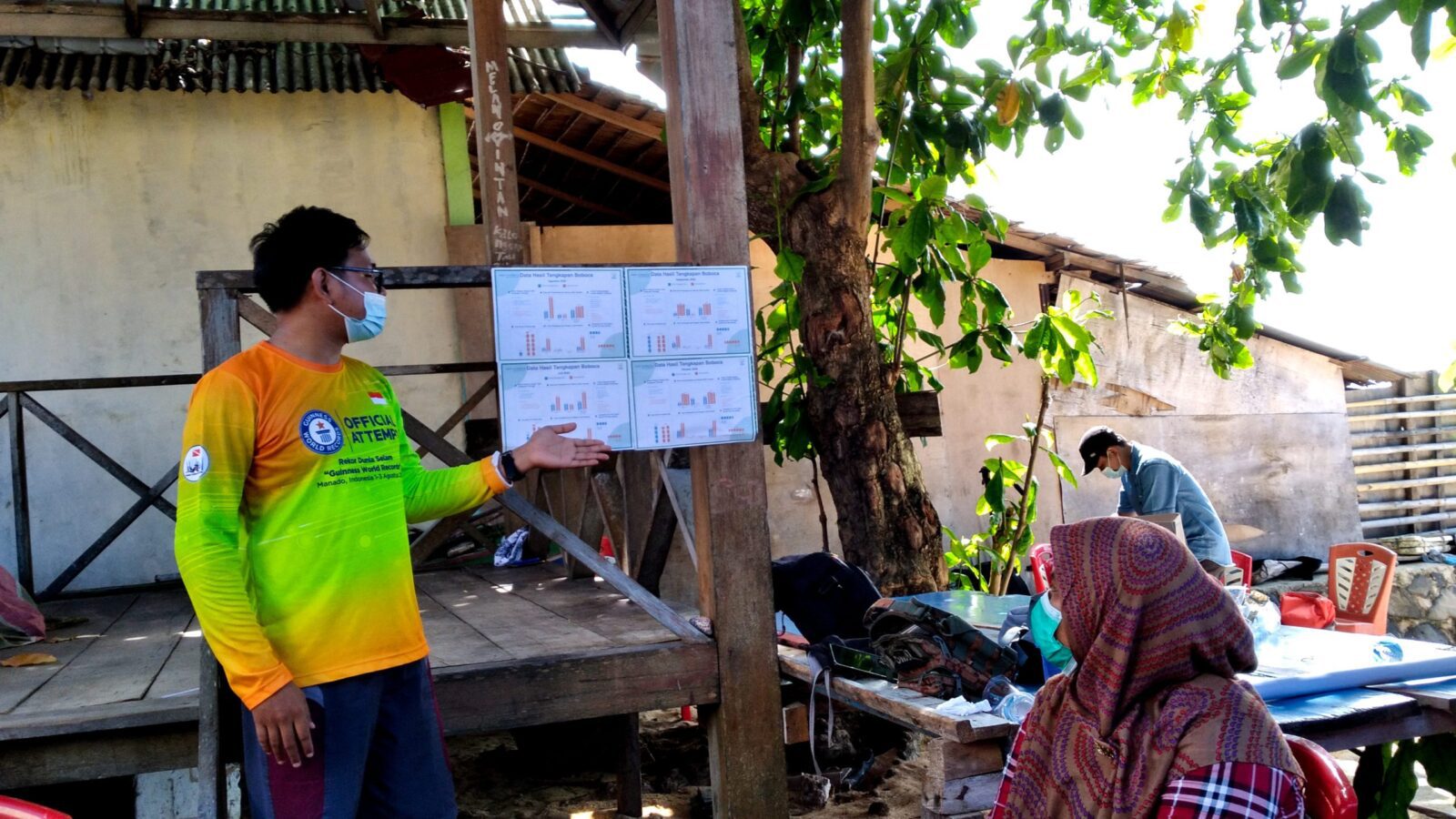
Efra Wantah (Yapeka) presented on participatory fisheries monitoring | Photo: Blue Ventures
In North Minahasa, the fishers of Bulutui and Gangga Satu started to monitor their octopus catch in 2018. YAPEKA helped them establish a catch monitoring system and trained octopus buyers as data collectors – recording catches, fishing locations and gears. In Ende, octopus fishers from Mourongga Village and the Arubara community soon followed suit and also started to monitor their octopus catches, supported by Tananua Flores Foundation.
“The data collection process starts when fishers come to sell their octopus,” said Lina, an octopus buyer and now data collector from Gangga Satu Village, “We collect data about the octopus, such as the fisher’s identity, the size of the octopus and where it was caught. In my village, octopus buyers (or their relatives) also usually become octopus data collectors. When a buyer becomes a data collector, it makes data collection much more effective,” Lina concluded.
Following a discussion about the octopus measurement process, which also covered the changes in condition and size of octopus observed by fishers during the COVID-19 pandemic, many of the participants were inspired by the efforts of other communities. An octopus buyer from the Arubara community, Fudin Ali, was particularly interested in the data collection method carried out in Gangga Satu and Bulutui:
The communities of Gangga Satu and Bulutui are just like us. We all have two hands, so if they can manage their octopus fisheries, we can too,” he said.
During the Anjangsana Mitra, the octopus fishers also learned about different types of fishing gear (the equipment used to fish). Dance Amenda, a fisher from Gangga Satu Village, uses ‘ketang’, crab-like bait that means he doesn’t have to dive to catch octopus. Meanwhile, Muhamad Isnaini, an octopus fisher from the Arubara community, explained that in his village they dive to catch their octopus, using iron poles with hooks.
“I learned new things about octopus fisheries from the community and fishers here. I hope that we can implement similar ideas in Ende, to manage the fishery,” Isnaini told a Mongabay Indonesia journalist, who also joined the Anjangsana Mitra activity.
Sharing inspiration
Many stories and lessons were shared during the three-day Anjangsana Mitra in North Minahasa. The communities and the two facilitating organisations have different backgrounds, with their own unique context and culture, so each offered their own perspectives and experiences of fisheries management, enriching the knowledge of one another. Despite their differences, all of these groups are working towards the same shared goal: promoting sustainable fisheries management in Indonesia’s biodiverse marine environments.
Fudin Ali, the octopus buyer who took a keen interest in data collection, shared his ambition:
It’s not about how much money we have, it’s about our willingness. I never thought that I would visit these communities and learn about Rumah Boboca. But now I’ve seen it, I think we should also have similar octopus fisheries management in our village and if we do it hand in hand, we can make it happen.”
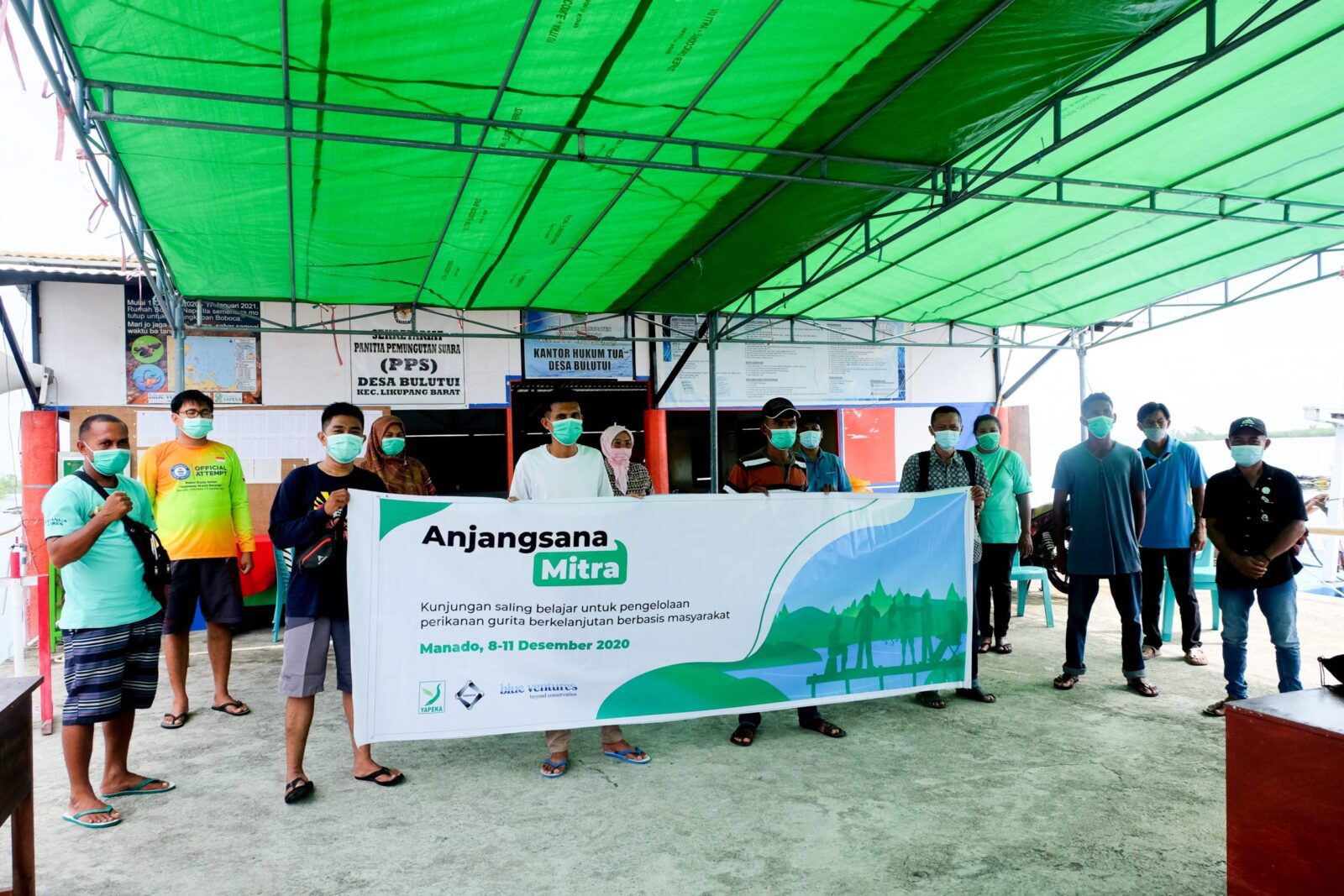
The participants Gangga Satu are looking forward to seeing how the future of their fisheries evolve | Photo: Blue Ventures
Learn more about Bulutui’s Rumah Boboca
Meet Metty Wasa, Tananua Flores Foundation’s inspiring Office Manager
Meet Ami Raini Putriraya, Site Manager for North Minahasa at YAPEKA


